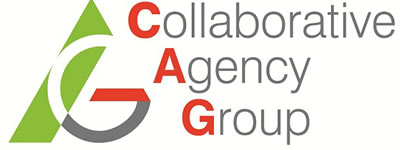
06 Jul Jeffrey Rosensweig

Speaker: Jeffrey Rosensweig
Director of the Global Perspectives Program at Goizueta Business School of Emory University; Global Economics Forecaster and Expert on Global Investing and Business Strategy
Topics:
- The Economic Outlook and Its Implications
- Global Economic, Financial, and Demographic Trends Impacting Investing
- Deficits, Debt, and Possible Inflation
- Global Economic, Financial, and Demographic Trends Impacting Business Strategy
- The Global Impact on Your Industry
- What Every Executive Should Know about the US and the Global Economy
Keynote speaker Jeffrey Rosensweig is the Director of the Global Perspectives Program at Goizueta Business School of Emory University. Previously, he served for six years as an Associate Dean. An international business and finance professor, he focuses his research, teaching, and consulting on global investing and business in the global economy. He also specializes in financial, macroeconomic, and business forecasting. A frequent keynote speaker on topics related to global economic and financial trends and forecasts, he is selected annually as the global-investing keynoter at the Security Industry Association’s Annual Institute. In January 2000, he was elected to the Council on Foreign Relations. Jeffrey Rosensweig speaks with clarity and precision about the current financial climate, and gives practical solutions to ensure a better fiduciary future for the individual and for the country at large. Before Emory, Dr. Rosensweig served as senior global economist in the Research Department of the Federal Reserve Bank of Atlanta.
Author: He has published numerous papers in academic and business journals. His book, Winning the Global Game: A Strategy for Linking People and Profits, received critical acclaim. Pearson Prentice-Hall published his third book, Age Smart, in May 2006.
A Distinguished Economic Educator. Active in executive education, Dr. Rosensweig was recently selected by the Wall Street Journal as one of the 12 favorite professors in all executive MBA programs worldwide. He received the Distinguished Educator Award voted by Emory’s executive MBA students during four consecutive years. BusinessWeek has ranked this program seventh in the world and second for global business. Dr. Rosensweig received his M.A. and B.A. in economics (summa cum laude) from Yale University and a Ph.D. in economics from Massachusetts Institute of Technology (MIT). Further, he received a master’s degree in philosophy, politics, and economics as a result of two years of study at Oxford University as a Marshall Scholar. The British government has selected him to serve on the Marshall Scholarship selection committee for 15 years, and recently appointed him chairman for the southeast.
The Economic Outlook and Its Implications:
Executives and investors must set their strategies with an eye to the economic outlook. The problem is that the outlook is so clouded right now. After the recent ‘Great Recession’, the economy began to grow. Still, there are justified fears of a double-dip recession. Almost all economic forecasts are too focused on predicting just one possible outcome. However, the current extraordinary uncertainty implies that various scenarios are quite possible. As a speaker Jeffrey Rosensweig will analyze the economic outlook, including a portrayal of the more likely scenarios. While discussing these scenarios over the relevant time horizons, he will highlight the implications of each for your industry and describe how audience members should prepare.
Global Economic, Financial, and Demographic Trends Impacting Investing:
Investors know that global investing is likely to continue to gain prominence. Will investments in foreign markets, both advanced and emerging, increase long-run returns for a given level of risk? Where do global investments properly fit into different investors’ portfolios? Do demographic factors overseas have even more of an impact than the aging of the US baby boom? Which economies will become large and sources of significant growth in the future? This session uses an array of trends to address such questions.
Deficits, Debt, and Possible Inflation:
The Record Government deficits from 2008 onward are a subject of constant debate. Should action be taken now to reduce the deficits? Or, do we need further economic stimulus even if it implies a growing deficit? On the one hand, the deficits are adding to a mammoth and exploding government debt. This debt could lead to inflation. Rosensweig will address the implications of debt accumulation and possible inflation for investors. On the other hand, the economy and particularly the job market remain stagnant. Could actions to cut the deficit, such as tax increases, cause a double-dip recession? Policymakers are faced with difficult choices and Rosensweig will analyze the impact of such choices on investors and business leaders.
Global Economic, Financial, and Demographic Trends Impacting Business Strategy:
Business executives looking to grow are bombarded with reports on the world’s emerging markets and the need to globalize. Powerful forces are helping populous nations such as China and India increasingly impact the global economy. Rosensweig will help to separate fact from fiction, portraying the trends that should guide a successful growth strategy.
The Global Impact on Your Industry:
Some industries know that global markets or global competitors are absolutely crucial to their future. If so, what strategies should firms in the industry adopt? Other industries are impacted by global forces in more subtle ways. However, they need to set strategies reflecting these forces now, because this session will show the growing global impacts on specific industries. Professor Rosensweig tailors his lectures to analyze the implications of trends and forecasts for audience members.
What Every Executive Should Know about the US and the Global Economy:
Executives as well as investors must constantly strive to learn and grow, especially given our increasingly competitive and global economy and job market. Keeping up with, and then extending your command of, both the US and the global economy and financial markets is a must. This session aims to help you not only survive, but to thrive in the current volatile and globally-competitive markets.



